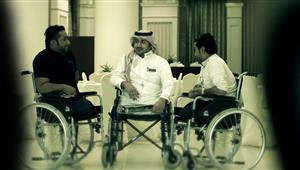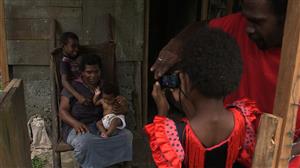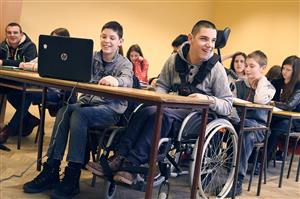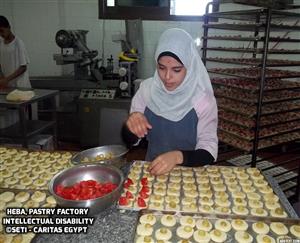Search Results
Search
Filter results
Advanced Filters
Your search returned 280 Solutions
-
Disability-inclusive communities in remote areas
The programme focuses on prevention of childhood Disability, Community Based Rehabilitation and strengthening community systems in order to continue the work using resources provided by local government authorities. Between 2015 and 2017 approximately 5,000 persons have benefitted from Inspire2Care.
Karuna Foundation, Inspire2Care, Nepal -

Quotas, support and subsidies for private employers
By building on validated initiatives the programme has established legislation, policies, and procedures for employers that include quotas, incentives, and subsidies. Launched in 2014 by 2016 of the approximately 648,000 Saudis with disabilities, 62,728 were employed by 31,790 companies and nearly 17,400 received subsidies.
Saudi Arabian Ministry of Labour, Tawafuq Empowerment for Employment for Persons with Disabilities Programme of 2014 Ministry of Labour and Social Development (MLSD) and the Human Resource Development Fund (HRDF), Saudi Arabia, Saudi Arabia -
Entrepreneurship training and support for persons with disabilities
The programme supports the self-employment of people with disabilities. Launched in 2018, the project was implemented in seven provinces by 2020. Of the 502 young entrepreneurs who received support after start-up, 360 are succeeding as entrepreneurs and 12 have secured sustainable employment.
KFF - Kadiwaku Family Foundation, Inclusive Entrepreneurship for Persons with Disabilities, Congo -
A broad, low-cost, and comprehensive model to create accessible schools
The aim of HOPE is to ensure and to increase the school enrollment of children with and without disabilities in rural areas. This is mainly done through improving school accessibility and by establishing community-based rehabilitation centres, where children with disabilities are readied for school.
Save the Children International, HOPE, Bangladesh -

Giving a voice to children with disabilities
The project seeks to develop a simple and effective method for children with disabilities to express or communicate their life priorities and human rights issues. Therefore project team developed a set of inclusive tools to overcome barriers in verbal or oral communication and made these available on the project website.
Deakin University, Australia -
Escola de Gente is a theatre project that works on the full inclusion of persons with disabilities not only by enabling them to visit and enjoy theatre, but also by actively participating in creating an inclusive culture by publishing all kind of accessible material and advocating for an inclusive education system.
Escola de Gente enables actors and audience members with and without disabilities to participate in and enjoy theatre. The stories told on stage address themes like discrimination and inclusion. Descriptive subtitling, sign language interpreters, audio description, programs in Braille and multimedia materials play an essential part.
Escola de Gente - Communication in inclusion, Cultural inclusion through accessible theatre, Brazil -
An inclusive post-secondary programme for students with intellectual disabilities
This eight-semester programme allows students with intellectual disabilities to create and study a personalized curriculum. Students of teacher training assist them and take on the role of tutors. The programme supports the preparation of students for the labour market, while the teacher trainees receive credits towards their studies.
Pedagogical College Salzburg, BLuE University Programme, Austria -

Textbooks in electronic, audio and video formats for mainstream primary schools
In 2013, UNICEF launched a project across Montenegro to produce DAISY-Textbooks and make them available in mainstream primary schools. DAISY-Textbooks have visual and audio options enabling children with disabilities to follow more easily and to study alongside their peers. In 2019, 70 schools were already involved.
UNICEF - United Nations Children's Fund, DAISY Textbooks, Montenegro -

Focusing on employer needs and creating hundreds of jobs for young people with intellectual disabilities
The SETI Centre was founded by Caritas Egypt to provide vocational preparation and training to youth with intellectual disabilities. From its beginnings until 2016, the SETI Centre has placed over 500 youth with disabilities in various types of jobs as well as supported 300 of them to start their own businesses.
SETI Centre for Training and Studies on Disability, Egypt -
Using iPads to create multiple information channels
The project developed interactive textbooks on vocational subjects designed to include students with learning disabilities, and that can be used on iPad. The subject matter is presented in multiple ways and offers a variety of learning styles. The project also offers customized tools to help students with dyslexia.
CLE - Leonardo Education Center, Italy